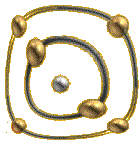AwayMave Home Page | IEPPP Home Page | 406 Module Home Page | University Home Page | VP Home Page

Reason, nature and the human being in the West
Module documents
AwayMave Home Page | IEPPP Home Page | 406 Module Home Page | University Home Page | VP Home Page |
||
 |
||
Reason, nature and the human being in the WestModule documents |
||
We do our thinking about 'the environment' with the use of a network of familiar, everyday, basic concepts. We ask what the relationship should be between the human being and nature, of what is in our best interest, of whether animals or plants have interests of their own; and of what in all the circumstances it is rational for us to do.
These concepts embody in part the framework of thought of contemporary culture. In this module we investigate their history.
Val Plumwood's Feminism and the Mastery of Nature presents (in a single accessible volume) a stimulating account of that history and brings it powerfully to bear on current environmental concerns and current environmentalism. We use this volume as the central text.
Particular foci may include:
Nature as a book written by God, partly to teach us how to live, and the 'study' of nature as in large part directed at discerning meanings. The Aristotelian/Scholastic conception of the basic structure of the universe. Aristotelian/Scholastic physics and the role in it of 'purpose'. 'Reason' as the guide to right living in medieval Christian thought; the place of the human being in 'the great chain of being'.
The conceptual tools of the scientific revolution - the concept of mechanical causation and 'laws of nature'. The human being from the 'Modern' perspective - the Cartesian mind. The 'Modern' concept of reason as articulated by John Locke. New concepts of society. Machiavelli and Hobbes.
Science beyond physics: the project of setting out 'the order of nature' - in classifications, display cabinets, botanic gardens, encyclopaedias. Natural History - Gilbert White. Science extended to the human being her/him self. Secularisation - Deism and Atheism. Rousseau and the conception of nature.
An alternative to mechanistic science? - Goethe and the pursuit of essences. Human life as self-expression. The Kantian self. A new take on 'nature'. Romantic science and technology: lighthouses, tarmac and the mackintosh.
Things are seen not primarily as structures but as processes, dependent on an organiser at their core (yielding the contemporary concepts of organism, self, and State.)
Revised 07:04:04
IEPPP 406 Home Page
Reason, Nature and the Human Being in the West
Part of a module of the MA
in Values and the Environment Lancaster University
Send Mail to the Philosophy
Department